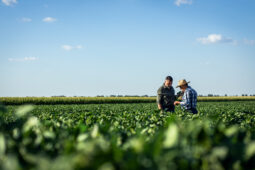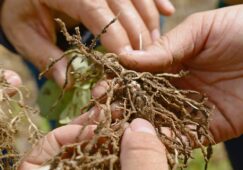Travelling to different areas of the world can expose travellers to unforeseen hazards. Every year, Muslims flock to Saudi Arabia for their annual pilgrimage, Hajj. They travel to Mecca, Saudi Arabia, to take part in Islam’s traditional sacred journey.
What is Hajj?
Hajj is known as one of the world’s largest gatherings, will millions in attendance. Hajj includes five days of prayer, going from the Masjid Al Haram complex to the hills of Mina. One of the five pillars of Islam, Hajj must be undertaken by every able-bodied Muslim with the wherewithal at least once during his or her lifetime. There are many stops on the pilgrimage, which culminates in a return to Mecca for a farewell Tawaf or circling ritual.
Who travels to Hajj?
Muslims come from all over the world to attend Hajj. The countries they travel from include Africa, Asia, Europe, America and South America. All of these travelers arrive in Saudi Arabia from different environments, sometimes carrying with them germs and viruses from their originating country. The stops on the Hajj journey are congested. If you have not been, can you imagine hundreds of thousands of people travelling the same roads in a small area?
Millions of people in one small area of the world
Unfortunately, there is not enough infrastructure along the way to support the massive influx of people that travel to Mecca at the same time. The Saudis spend large amounts of money to support Hajj, including building a massive $1.2 billion air-conditioned bridge in one gathering place, but the masses of pilgrims cause logistical nightmares that are difficult to solve. The lack of infrastructure and space (Mecca is a small town) with so many people congregating in the same place yearly poses an environmental hazard caused by the generation of mounds and mounds of garbage.
Heat and garbage mix to create unwelcome odors
To complicate the odor and trash removal problem, Saudi Arabia has yearly average temperatures of 18° Celcius, with temperatures regularly reaching between 45° – 54° Celcius in the summer. The heat becomes intense after sunrise and can drop to become surprisingly cool after sunset. Hot weather quickly brings out the worst in odors, especially trash from human food. With three million people in close proximity eating several times a day, the trash from food piles up in the garbage bins, bakes in the hot sun, and begins to overflow. And stink.
Large garbage trucks are available and waiting to remove the garbage from the bins, but they cannot get into these spaces that are congested with pilgrims. The religious travelers throw trash into big bins and since it cannot be removed promptly, it causes odors. The trash attracts flies.
To elaborate, large garbage trucks are used at the end of the five days. The infrastructure has 1400 small compactor units distributed throughout the area of Mina. Garbage bags are dumped into these and the compactors crush them. At the bottom of these, liquid leaches out and generates gases such as hydrogen sulphide and ammonia. These have noxious odours.
Flies can spread diseases very quickly
Garbage in the hot sun causes horrific odors, but the odors are not the only problem. The main difficulty is the flies. Flies are attracted to odors and cause environmental hazards. With masses of people in Mecca for Hajj, an environment is created where disease can transfer from one person to another person quickly. The flies are the conduit of bacteria and disease, causing potential health hazards by how fast they can transmit diseases.
According to Penn State University College of Agricultural Sciences in Pennsylvania, USA, “Flies are not the neatest of insects. They visit such places as dumps, sewers, and garbage heaps. They feed on fecal matter, discharges from wounds and sores, sputum, and all sorts of moist decaying matter such as spoiled fish, eggs and meat.” Furthermore, “Flies are strongly suspected of transmitting at least 65 diseases to humans, including typhoid fever, dysentery, cholera, poliomyelitis, yaws, anthrax, tularemia, leprosy and tuberculosis. Flies regurgitate and excrete wherever they come to rest and thereby mechanically transmit disease organisms.”
Finding safe solutions for travelers to Mecca
In 2014, Gulf Scientific Gateway of Qatar, a BiOWiSH® Technologies Distributor in the Middle East, started working with the Kingdom of Saudi Arabia to solve the odor problem as well as other environmental issues occuring in the region. The biotechnology company, BiOWiSH Technologies, headquartered in Cincinnati, Ohio, USA, developed the new product that solved the problem. BiOWiSH® products consist of mixtures of naturally occurring (not genetically modified) microorganisms. This unique mixture of microorganisms and bio-chemicals creates products that generate significant performance across a broad range of applications, including odor control.
Gulf Scientific Gateway decided to test one of the products to control the odor. The BiOWiSH® product being tested is 100% natural and safe for both environment and people, so it poses no adverse threat to the health of the people coming to Hajj. According to Mohammad Al Sada, Chairman of Gulf Scientific Gateway, they decided to test it with the Saudi authorities before the Hajj and it worked well. It only took a week to approve it, and then the Saudis submitted an order to cover almost 30% of the Hajj places.
Dr Azahar Iqbal, Managing Director of Gulf Scientific Gateway, told us, “In 2014, we sprayed 450 small compactors that were close to a hospital in Mina and significantly reduced the odor levels. As a result the use of pesticides was reduced considerably according to the Hajj operations management team. They also noticed a significant reduction in medicines given out by the Kingdom for coughs and infections. As a result in 2015 the operations team agreed to cover the whole area through 160 large compactors that posed greater odor related issues and due to complexities in deployment of staff it was agreed to work in this manner. The results were excellent.”
Mohammad Al Sada said, “Mecca and Saudi Arabia recognize the odor problem and don’t want to permit this problematic environment to occur at anytime, especially during Hajj. They needed quick solutions to kill the smell, and then when you kill the smell, the flies are gone. The Saudi Authorities are very cautious in choosing the right product to implement, so the testing we did before Hajj was important.”
The product is supplied as a powder which is then mixed with water at a particular ratio, sprayed onto the waste and waste-related areas. It does not require a professional team to do the mixing or spraying of the product, which keeps the costs of using it lower as well. Mohammad said, “The product is easy to use and to apply. The pricing for the product is very competitive as compared to chemicals so it was an easy choice.”
Using natural products to solve global environmental issues
A new breed of biotechnology companies around the world are working to develop natural, chemical-free solutions that solve environmental problems, BiOWiSH® being one of them.
BiOWiSH® products have been found to increase food production, clean up the environment, and improve human and animal health. For example, BiOWiSH® Odor has been tested and found to remove odors, such as hydrogen sulphide and mercaptans (rotten egg smells), amines (fishy smells), ammonia, and a wide range of other noxious odors.
Rod Vautier, Vice President of BiOWiSH® Technologies said, “BiOWiSH® Odor has been used at the Hajj in the Kingdom of Saudi Arabia in 2014 and again in 2015. We expect to continue working with the Kingdom of Saudi Arabia in 2016 through our distributor, Gulf Scientific Gateway. We are also hoping to advance our agricultural and water treatment products in Saudi Arabia as well as in the United Arab Emirates, Kuwait, Pakistan and Jordan.”
Check out our odor products and learn how they can help you!





